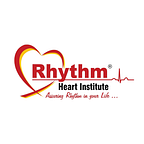The Ultimate Guide to Caring for Your Heart After Surgery
Recovering from heart surgery is a significant phase in your life, requiring careful attention and adjustments to ensure a smooth and healthy recovery. This guide provides essential tips and strategies to help you take the best care of your heart after undergoing surgery.
1. Follow Your Doctor’s Instructions
First and foremost, closely follow the advice and instructions given by your healthcare team. After your surgery, your doctor will provide a detailed plan that includes medication schedules, follow-up appointments, and specific recommendations tailored to your condition. Adherence to these instructions is crucial for your recovery and helps prevent complications.
2. Manage Your Medications
You will likely be prescribed several medications to manage pain, prevent infections, and reduce the risk of further heart issues. It is essential to take your medications as prescribed without missing doses. Use tools like pill organizers or set reminders on your phone to keep track of your medication schedule.
3. Monitor Your Diet
Eating a heart-healthy diet is vital after heart surgery. Focus on consuming a balanced diet rich in fruits, vegetables, whole grains, and lean proteins. Limit your intake of salt, sugar, and unhealthy fats. A proper diet not only aids in recovery but also helps in managing your weight and reducing the burden on your heart.
4. Stay Active
While it’s important to rest after your surgery, incorporating gentle physical activity into your routine is equally crucial. Start with short walks and gradually increase your activity level based on your doctor’s advice. Physical activity helps strengthen your heart muscle, improves circulation, and can boost your mood during recovery.
5. Quit Smoking
If you smoke, quitting is one of the best steps you can take to improve your heart health. Smoking can interfere with the healing process and increase the risk of complications like infections and blood clots. Seek support from cessation programs and consider therapies such as nicotine replacement or medications to help you quit.
6. Attend Follow-up Appointments
Attending all follow-up appointments is essential for monitoring your recovery and managing any potential complications. During these visits, your doctor can make necessary adjustments to your treatment plan based on how well you are healing.
7. Manage Stress
Recovering from heart surgery can be emotionally challenging. Manage stress through techniques like deep breathing, meditation, or talking to a counselor. Reducing stress is important for your emotional well-being and can positively affect your physical health.
8. Understand Warning Signs
Be aware of signs that may indicate a problem during your recovery, such as excessive chest pain, shortness of breath, high fever, or swelling in your legs. If you experience any of these symptoms, contact your healthcare provider immediately.
9. Join a Support Group
Consider joining a support group where you can connect with others recovering from heart surgery. Sharing experiences and advice can provide emotional support and valuable tips to help you through your recovery process.
10. Choose the Right Hospital for Follow-up Care
Selecting the right hospital for your follow-up care can significantly affect your recovery. Consider a facility that specializes in cardiac care, such as a heart hospital in Vadodara. Such hospitals are equipped with specialized medical staff and resources dedicated to heart recovery.
Conclusion
Recovering from heart surgery involves meticulous care and attention to your health and well-being. By following these guidelines and choosing a reputable heart hospital for your follow-up care, you can ensure a smoother and more effective recovery. Remember, each step you take following surgery is a step towards a healthier heart.
